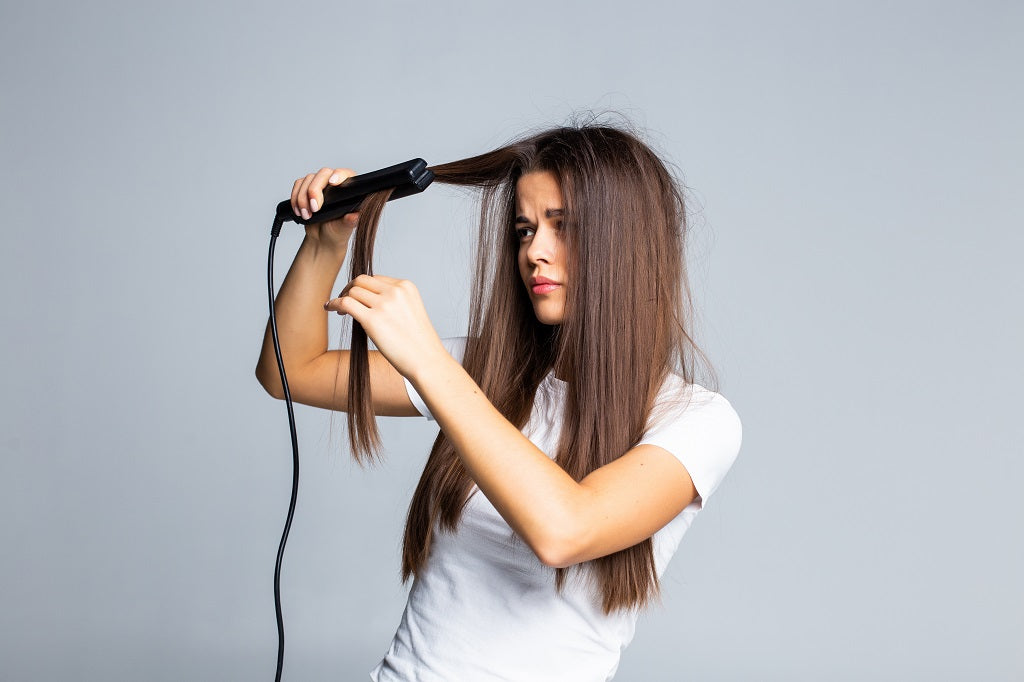Our skin is the largest and the most exposed organ of our body. We constantly expose our skin to various skincare products in order to make it look and feel better. Therefore, knowing the ingredients of your skincare product is crucial as certain skincare ingredients don't mix well. With people using storebought actives on their skin, the wrong combinations can wreak havoc! This is why it is really important to make sure to use the right ingredients which are in complete harmony with each other. In this blog, we will discuss different types of skincare ingredients and determine which ones work well together, and which ingredients combinations should be avoided altogether.
Different Kinds Of Ingredients Found In Skincare Product
Active ingredients found in skincare products are divided into different categories based on their function in the product formula. Let’s check out the different types of ingredients in the skincare product formula.
- Antioxidants- Substances that are known to neutralize the effect of free radicals. Eg: Vitamin A, C and E
- Humectants- These are the ingredients that help retain moisture for a longer duration. Eg: Aloe vera, hyaluronic acid, glycerine, honey.
- Active Ingredients- Ingredients present in the skincare product to deal with specific skin concerns. Eg: AHAs (lactic acid & glycolic acid), BHAs (salicylic acid).
- Anti-Ageing Ingredients- These ingredients are known to reduce wrinkles and fine lines by boosting collagen production, reducing dark spots and blemishes. Eg: Retinols, ceramides, niacinamide, hydrolyzed collagen.
- Skin Lightening Ingredients- The main function of these ingredients in your skincare product is to brighten and lighten your skin. Eg: Vitamin A, C, kojic acid, licorice extract.
- Emulsifier- Ingredients that are responsible for holding water and oil together in a product formula.
- Surfactants- These are surface-active ingredients generally found in soaps, shampoos and facial cleansers. These are harsh chemicals which along with dirt and grime stripe natural oil also from the skin.
- Emollients-These ingredients are known for their skin softening and smoothening effect. Eg: Natural oils, Squalane, silicones.
- Solvents- They dissolve active ingredients to stabilize the product formula. Eg: Ethylhexyl palmitate, Glycerine
- Fragrances- They are present in the skincare product for imparting fragrances. Eg: Essential oils.
Which Are The Combinations Of Skincare Ingredients That Work Well Together?
You should have a fair understanding of which are the skincare products in your beauty regime that complement each other in order to avoid dryness or allergic reaction on skin. Here is the list of combinations of skincare ingredients that work well together.
1. Retinols & Hyaluronic Acid
This is a power-packed combo as Hyaluronic acid is known for its moisturizing property and retinols (Vitamin A) are beneficial for boosting collagen production. This combo is beneficial for improving the texture of your skin, making it look well-nourished and well-hydrated.
Also Read : Hyaluronic Acid- A Secret to Youthful Skin
2. Sunscreen And Vitamin C
This skincare combo is known for its protective and healing properties. Sunscreen with an SPF of above 30 is beneficial in protecting your skin from the harmful radiation of the sun. Vitamin C is a powerful antioxidant that fights free radicals reducing photodamage to the skin. This skincare combo is beneficial for eliminating dark spots, hyperpigmentation and sun damage.
3. AHAs & BHAs
AHAs like glycolic acid, lactic acid is water-soluble and BHAs such as salicylic acid is oil soluble. The pairing of AHAs with BHA is mostly used in deep cleansing formulas. The oil-soluble BHA in the product formula is able to penetrate lipid layers of the skin and reach deeply into the layers of skin, unplugging the blocked pores. Both alpha hydroxy acid and beta hydroxy acid exhibit mild exfoliating properties, thus eliminating dirt, grime, debris and dead skin cells from the skin surface. This combination is good for oily and acne-prone skin.
4. Hyaluronic Acid & Niacinamide
Hyaluronic acid helps retain moisture for a longer period of time and niacinamide is known for its anti-inflammatory property. Niacinamide has a soothing action on the inflamed skin and it also effectively reduces the appearance of pores. These two skincare ingredients complement each other as hyaluronic acid keeps your skin well-hydrated and niacinamide helps to reduce pores, controls sebum production, thus known to be beneficial for oily and combination skin types.
Also Read : Niacinamide, The Miracle Worker You Need in Your Skincare Regime
You can include these ingredient combinations in your skincare routine to enhance the texture of your skin tone.
Which Skincare Ingredients Should Not Be Used Together?
Have you ever experienced any allergic reaction after introducing a new product in your skincare regime? It is because the ingredients present in the new product may not go well with the ingredients already present in your skincare regime. All the ingredients of your skincare products should be in complete harmony with one another otherwise you may experience an adverse reaction on your skin. Skincare routine for combination skin types can be a bit tricky as you need ingredients for controlling excess sebum production as well as for controlling dryness. Here are some ingredients that don't mix well and shouldn't be used together.
1. Retinols And AHAs/BHAs
Retinol or Vitamin A and its derivative retinoic acid are loaded with anti-ageing benefits. Retinols (Vitamin A) slows down the ageing process by boosting collagen production, reducing wrinkles, fine lines and age spots. Retinoic acid accelerates the process of cell turnover, improves blood circulation, giving you a healthy and youthful look.
On the other hand, AHAs/BHAs act as an exfoliating agent, sloughing off dead skin cells from the skin surface, promoting the growth of new skin cells. When both the ingredients (retinols and AHAs/BHAs) are used together it can cause dryness, leading to itchy and inflamed skin. All skin types should avoid this ingredient combination including people with combination skin types as it can make the dry areas drier and the oily area more oily leading to breakouts.
2. Vitamin C And AHAs/BHAs
Experts say that the combination of Vitamin A and AHAs is an absolute no. Vitamin C is acidic in nature and exhibits exfoliating properties. AHAs/BHAs are also known for their exfoliating properties, hence combining both these ingredients can have a negative effect on the skin, disturbing the pH balance of the skin.
Also Read : Beauty Benefits Of Vitamin C Serum
3. SPF And Makeup
The pairing of sunscreen with makeup products such as primer, and foundation is a bad idea. When sunscreen is mixed with other makeup products, its efficacy is reduced giving you minimum or no sun protection at all.
4. Benzoyl Peroxide And Tretinoin
Both benzoyl peroxide and tretinoin are active ingredients known for their acne-controlling properties. Experts do not recommend mixing both ingredients, as benzoyl peroxide is known to oxidize tretinoin and degrade it, reducing its effectiveness. When combined, the two ingredients neutralize each other, reducing their effectiveness and increasing the risk of irritation.
The best thing to do is to use benzoyl peroxide in your morning skincare routine and tretinoin (retinol) in your night skincare routine.
Check the list of ingredients in your skincare products and make sure that you do not layer the products containing these ingredients together.
Disclaimer: All the content on anveya.com/blogs is solely for information. It is not intended to be a substitute for professional medical advice, diagnosis or treatment. Always seek the advice of your physician or a qualified health care provider. The information, suggestion or remedies mentioned on this site are provided without warranty of any kind, whether express or implied.



